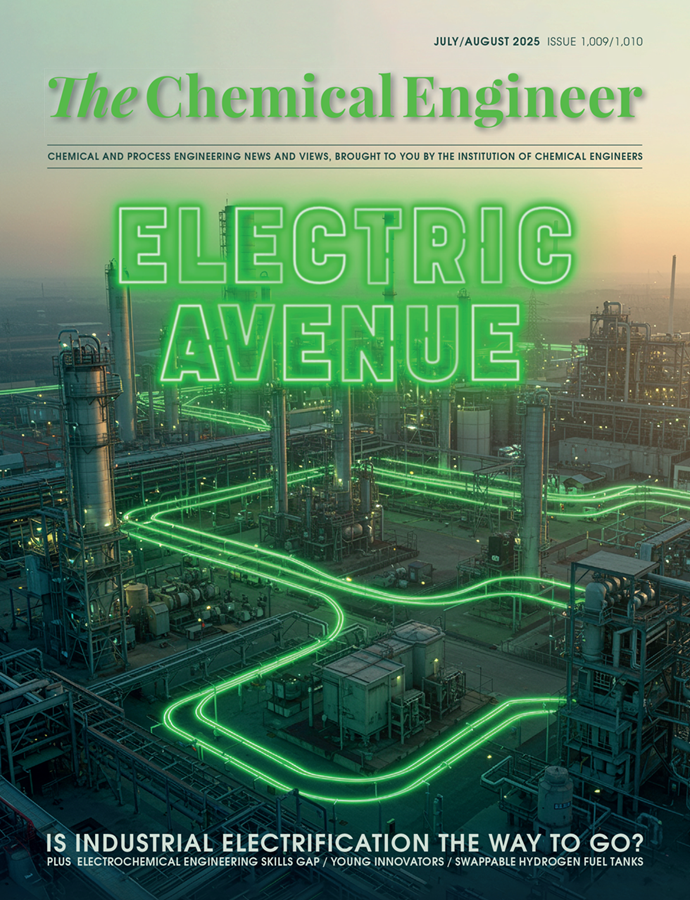Phosphate Rocks Chapter 26: Crystals

Hughie had no idea that his job was to grow crystals. As far as he was concerned, gypsum was rubbish that got dumped out to sea. His job was to make phosphoric acid. A job that would have been easier if he didn’t have to work with Fraser. One night, Hughie was so annoyed by Fraser’s use of peculiar words that he had to telephone the granulation plant operator to vent. He didn’t notice something was wrong until an alarm interrupted his conversation.
He looked up at the panel. The flow from the reactor to the rotating filter had stopped.
He checked the reactor level. Without any flow out and with feeds continuing in, the reactor level was rising fast. Hughie took immediate action. He stopped the wash water flow to the filter, the recycle acid and the sulphuric acid feeds to the reactor.
Then he called Fraser.
Why didn’t Hughie stop the phosphate rock?
Liquid feeds are easy to stop and start. You press a big red button on a control panel, and an automatic valve closes. When you want to start it up again, you press a smaller green button, the valve opens and Bob’s your uncle. Or at least, Hughie thought sourly, Bob was Fraser’s uncle, which was the only reason the posh git had a job.
Solids are messy things. Miles of conveyor belts trundled through overhead gantries to ferry the phosphate rock from a whalebone shed to the reactor. Although it was possible to press an emergency button in the control room to stop the final belt, there was no way to restart the solid feed from the control room. When the final belt tripped, it took time for the other belts to stop. Sometimes that led to a pile up, mountains of powdered rock spilling over motors and gears and sprockets. Each belt had to be checked, sometimes shovelled clear, before each belt motor could be restarted, and that meant climbing up to the gantry and walking miles with a shovel to check, clear and restart each belt in turn.
During the daytime, he could leave it to Fraser to request assistance from one of the greasers, but at night there was only Hughie and Fraser and restarting the phosphate rock feed was a two-man job.
So Hughie left it running.
When Fraser appeared, expecting to be given another menial task, some new humiliation to be heaped on top of the last, he was spoiling for another verbal battle. Hughie took the wind out of his sails by asking him for help to find the fault and restart the flow to the filter. It took a while, but fault-finding was what Fraser was good at.
Fraser traced the pipe between the reactor and filter. All the valves were open, nothing visually amiss. He laid hands on the pipe wherever it was accessible until he detected a cold spot, in the S-bend after a long straight run. The ideal place for some sticky gypsum to settle out, a plug made of plaster of Paris. He went to the stores and withdrew a steam hose and a mallet and set to work to clear the blockage. Within the hour, the slurry was flowing to the filter again.
John always checked the shift production volume, so when Fraser got the flow back to the filter, Hughie exported the phosphoric acid to the storage tanks, strong and weak, all of it: he didn’t bother sending any recycle back to the reactor for another hour. Just to catch back up.
He restarted the liquid flows, put his feet up and opened a magazine.
Recent Editions
Catch up on the latest news, views and jobs from The Chemical Engineer. Below are the four latest issues. View a wider selection of the archive from within the Magazine section of this site.




